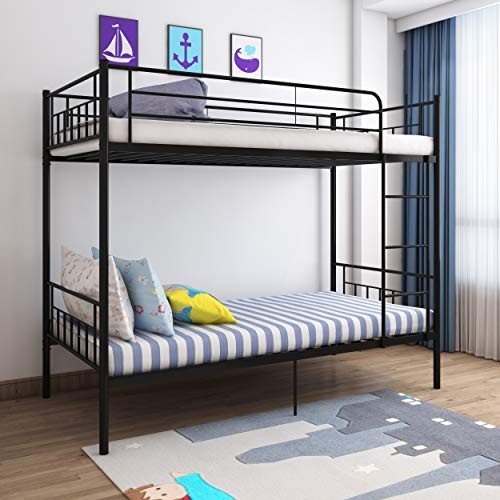
29
六月15 Things You've Never Known About Bunk Beds Sale
Bunk Beds Sale: A Comprehensive Guide to Choosing the Right Bunk Bed for Your Home
Bunk beds have long been a staple in children's bed rooms, providing a combination of space-saving efficiency and fun. Whether accommodating brother or sisters, friends on sleepovers, or simply optimizing a playroom, bunk beds have become a necessary element in modern household homes. As sales on bunk beds increase, it becomes increasingly crucial for customers to make informed choices when purchasing one. This post will cover the essentials of buying a bunk bed, from types to safety functions, as well as pointers for maintaining the integrity of your financial investment.
Types of Bunk Beds
When considering a bunk bed sale, it's essential to understand the various designs available on the marketplace. Below are the most common types:
Traditional Bunk Beds: These consist of 2 beds stacked one above the other, sharing a single frame. They are frequently the most cost-effective choice.
L-Shaped Bunk Beds: This design features one bed positioned vertically and another horizontally. This plan creates extra space below the upper bed, which can be used for storage or a backyard.
Lofted Beds: Similar to traditional bunk beds but without any lower bed. Rather, the space underneath can be used for a desk, play area, or additional storage.
Triple Bunk Beds: For families with a bigger variety of children or frequent sleepovers, triple bunk beds supply three sleeping locations in a space-efficient style.
Futon Bunk Beds: These styles combine bunk beds and futon sofas. The bottom area converts into a different seating area, enhancing functionality.
Convertible Bunk Beds: These beds can be separated into two private beds, making them flexible as kids's needs alter gradually.
Table 1: Comparison of Bunk Bed Types
| Type | Description | Space Efficiency | Extra Features |
|---|---|---|---|
| Conventional Bunk Bed | 2 beds stacked vertically | High | Most basic style |
| L-Shaped Bunk Bed | One vertical and one horizontal bed | Moderate | Play or storage space |
| Lofted Bed | Raised bed with open space listed below | High | Work/play area |
| Triple Bunk Bed | 3 stacked beds | Very High | Accommodates more users |
| Futon Bunk Bed | Bunk bed with a convertible futon | High | Multi-functional |
| Convertible Bunk Bed | Can be divided into two separate beds | Moderate | Versatility & & longevity |
Safety Features to Consider
Security is paramount when investing in a bunk bed. Below are key safety functions to look for:
Guardrails: Adequate guardrails ought to be present on both sides of the upper bunk to prevent falls. They must be at least 5 inches higher than the bed mattress.
Ladder Design: Look for durable, broad ladders with slip-resistant rungs. Ensure that the angle is not too high for easy gain access to.
Stability: Ensure the bed is constructed with strong products, such as strong wood or sturdy metal. The bed ought to not wobble when in usage.
Weight Limit: Check the weight capacity of the bunk bed to ensure it can accommodate the desired users safely.
Product Safety: If possible, choose beds made from non-toxic materials or those fulfilling safety requirements for children's furniture.
Table 2: Essential Safety Features
| Function | Description | Importance |
|---|---|---|
| Guardrails | Sides of upper bed to prevent falls | Vital for child security |
| Ladder Design | Solid, slip-resistant rungs | Aids safe and easy access |
| Stability | Construct quality to avoid wobbling | Guarantees safety and durability |
| Weight Limit | Maximum weight capacity | Prevents mishaps |
| Material Safety | Non-toxic, safe materials | Safeguards children's health |
Upkeep Tips for Bunk Beds
To extend the life of your bunk bed and ensure ongoing safety, think about the following upkeep ideas:
Regular Inspections: Periodically check the structure for loose screws, bolts, or any signs of wear. Tighten fasteners as necessary.
Tidy Periodically: Dust and tidy the surfaces routinely. Use appropriate cleaners that will not damage the finish.
Examine Weight Limits: Be conscious of weight limitations, especially with older children or adults who might want to utilize the upper bunk.
Avoid Climbing on Guardrails: Educate children not to use guardrails for climbing or playing to reduce the danger of mishaps.
Regularly Asked Questions (FAQs)
Q1: What is the age limit for children to safely utilize bunk beds?A: While it differs by the producer, numerous recommend that kids under six ought to not oversleep the upper bunk due to security concerns.
Q2: How can parents dissuade hazardous climbing?A: Setting clear rules about bunk bed usage and monitoring kids can help. In addition, using a bed tent can dissuade climbing up while developing a fun sleep environment.
Q3: What should I consider when embellishing a room with bunk beds?A: Ensure there suffices space around the bunk bed for safe movement, and utilize the design to develop personalized areas for each kid.
Q4: Is a lofted bed suitable for older children?A: Yes, lofted beds can be suitable for older kids as long as they meet security requirements and the child is responsible enough to use them safely.
Bunk beds serve a functional function while adding a component of enjoyable to a kid's bedroom. As sales of bunk beds continue to rise, mindful factor to consider of types, security features, and upkeep practices is necessary for parents and caregivers. By comprehending these crucial factors, households can discover the best bunk bed for their home, guaranteeing both functionality and safety for several years to come. Whether it's for siblings sharing a space or producing a relaxing sleepover space, a well-chosen bunk bed can offer delight and usefulness, making it a worthwhile financial investment.


Reviews